To commemorate Yoshiki, Dan, and Alex’s historic visit to CDG-SF’s room, I have compiled the proceedings into a pair of hand-made (screen/laser-assisted) physical objects:

They could almost be mistaken for books!
One will live in our library, and the other will be shipped to LA as a dev kit, with the lost laser + camera:

If you look carefully at this image, you can see some lines running down the spine, like that dictionary you had to use in middle school. I used the laser cutter to make tabs for every section. So tactile (15sec, 1.4mb)!
The book is comprised of 7 Examples (that our system should facilitate), 22 Academic Papers (that might inform our work), and 76 Wikipedia Excerpts (that drifted out from our conversation).
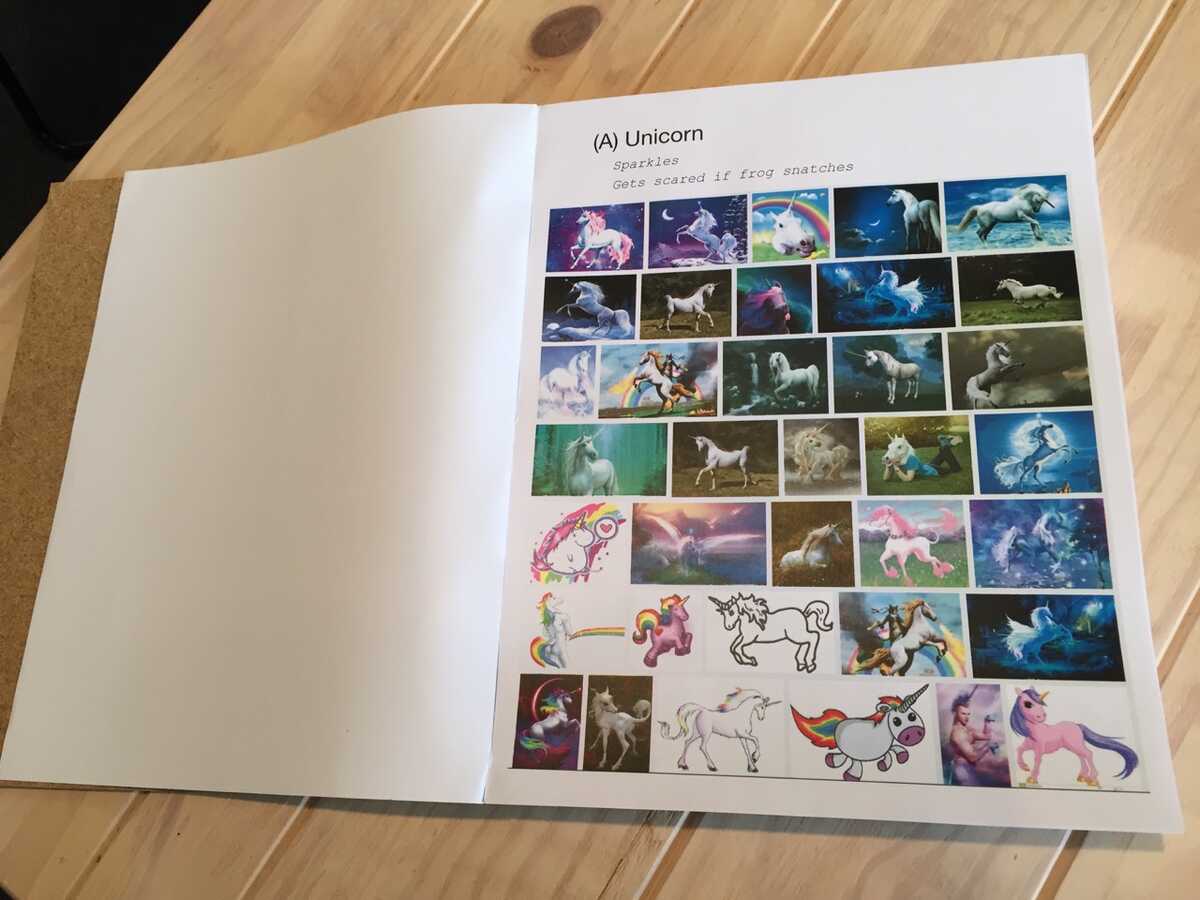
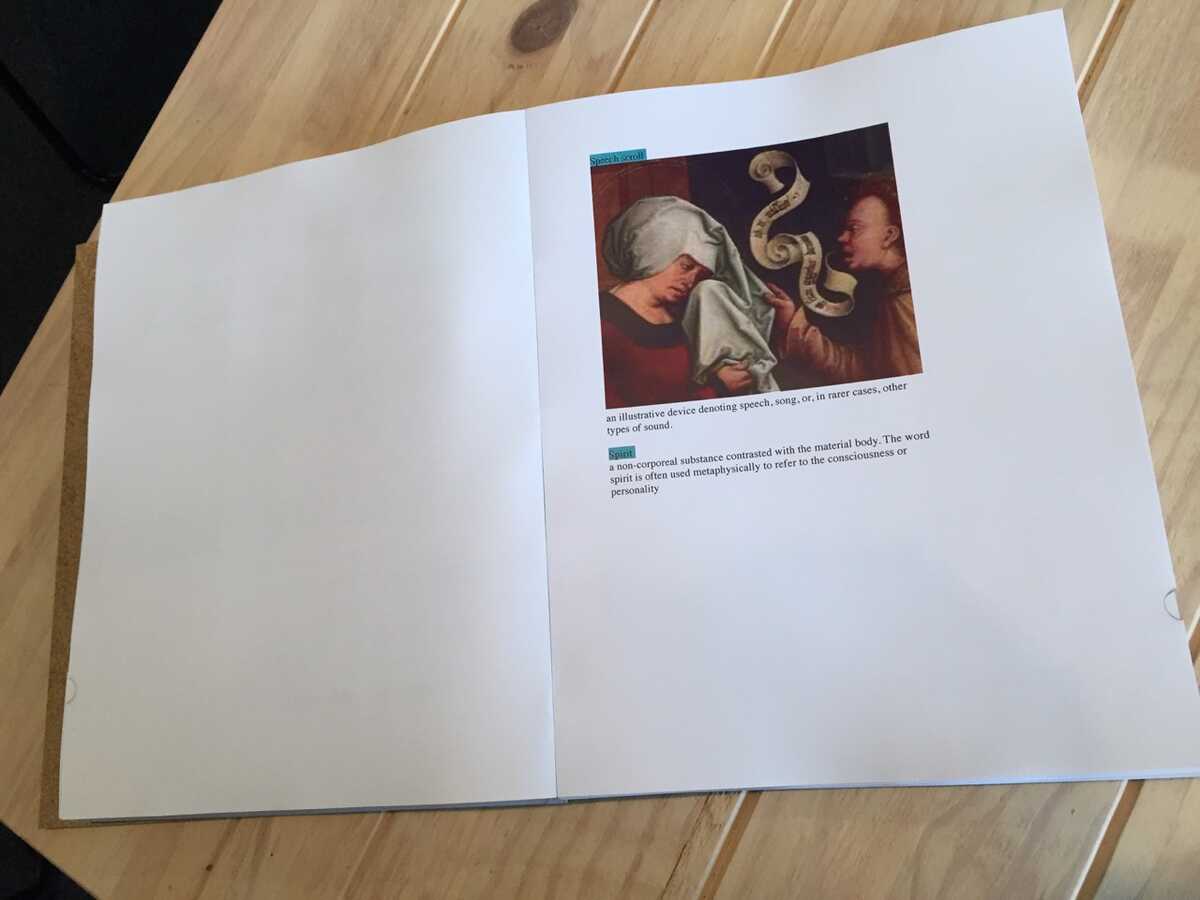
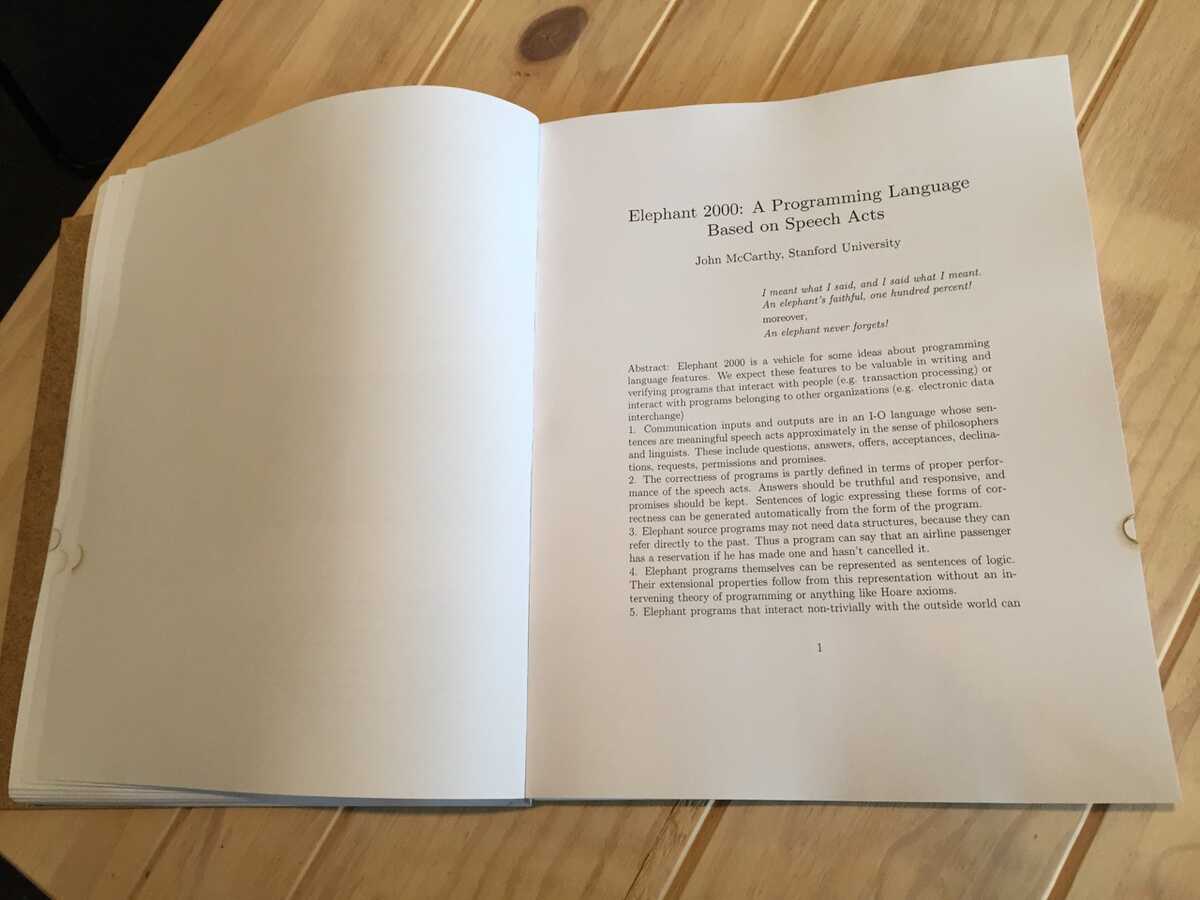
In addition to the Wikipedia excerpts, I read/skimmed through every academic paper, and extracted a page worth of screenshots to serve as a title page for each. For example, Elephant 2000 opens with my snippets, which actually focus more on the philosophical “speech act” concept (which was new to me and deeply provocative for thinking about the room) than the Algol 48 reference that inspired its inclusion:
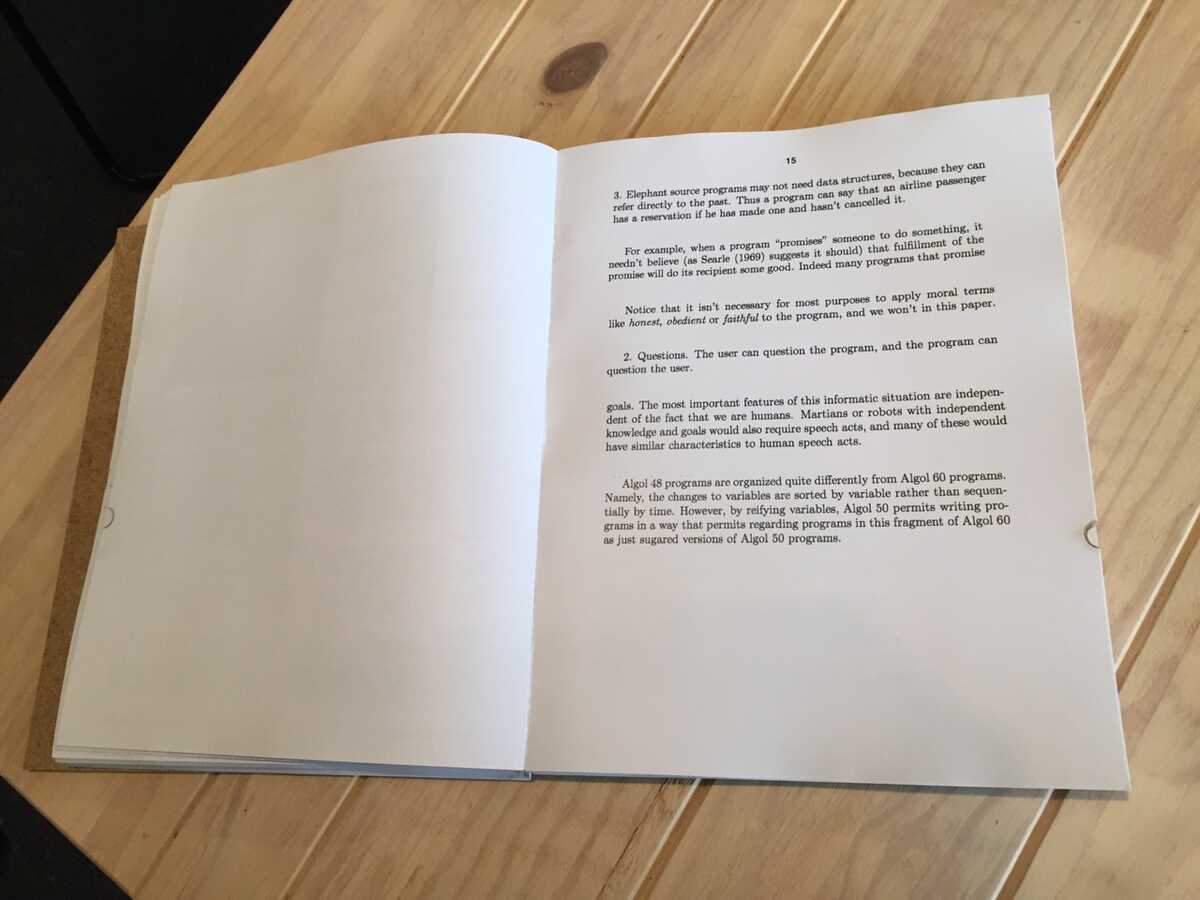
I included a dozen-odd vision/speech papers that we didn’t discuss, but which will nevertheless be very important in our next stages of the project. As we reach out to experts, we shouldn’t resign ourselves to specialization and “islands” of code/paradigms (using Doug’s words to express Alan’s mantra). I found interesting and general insights in the most seemingly arcane computer vision miscellany—here’s a snippet from the original RANSAC paper:
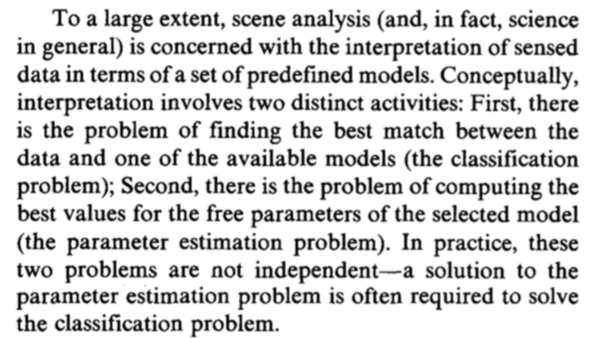
I did my best to come up with a hopefully-meaningful order for the papers:
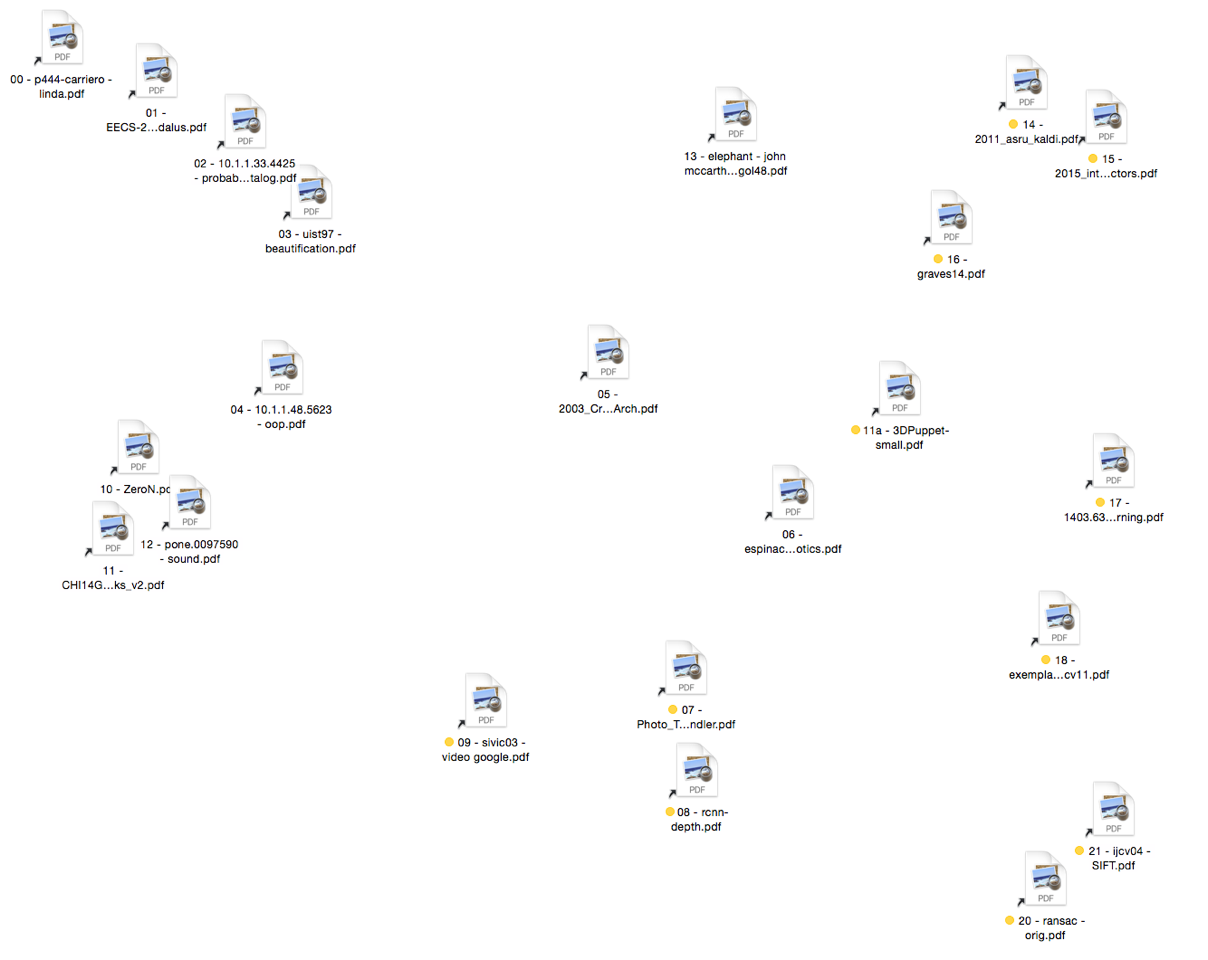
While I was doing that, and especially when I was making excerpts, I wished I could be working with the physical documents directly (instead of, well, you know…)
I’m not totally sure what binding these into a hardcover book does, but we’ll let time tell whether you get the most out of that nginx directory listing or the heavy object…
Speaking of binding, the perfect bind worked really well, but my naive hardcover adhesive strategy didn’t really pan out. The cover is more of a case than a traditional hardcover that’s attached to the book… also, about the the graphic design inside (wait, what graphic design inside?).

In case anyone’s keeping track, my one-page excerpts are available here, the examples here, contents page here, and the Wikipedia trace is pasted in below as well as online as a PDF here.
This is more about ideas and references than “action items.” I think we know what we’re doing on a logistic level? (Setting up an email list, installing room on the pineapple, writing an interpreter to replace the illumination host, &c &c &c.)
I enjoyed making these, and the process helped me synthesize many ideas. Let me know about your experience with The Thing!
Your correspondent,
R.M.O.
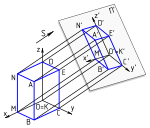
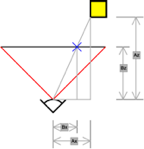
method of mapping three-dimensional points to a two-dimensional plane
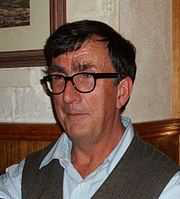
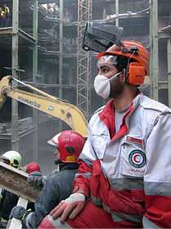
They have more skill than someone who is trained in basic first aid but they are not a substitute for advanced medical care rendered by emergency medical technicians (EMTs), emergency physicians, nurses, or paramedics (though many first responders are EMTs)
a technical drawing instrument that can be used for inscribing circles or arcs.
credited with inventing carpentry "and with it the saw, axe, plumb-line, drill, glue, and isinglass"
Daedalos, meaning "clever worker"
It is said he first conceived masts and sails for ships for the navy of Minos.
truly declarative logic programming language that syntactically is a subset of Prolog
Datalog queries on finite sets are guaranteed to terminate
statements of a Datalog program can be stated in any order
the spirit possession of an individual by a malevolent preternatural being.
Miniature dioramas may be used to represent scenes from historic events.
three-dimensional full-size or miniature model, sometimes enclosed in a glass showcase for a museum
Elm is a functional programming language for declaratively creating web browser based graphical user interfaces. Elm uses the Functional Reactive Programming style and purely functional graphical layout to build user interface without any destructive updates.

Find the right methods—Design by Prototyping.
general-purpose concurrent, garbage-collected programming language and runtime system
Make mistakes on a small scale, not in a production project.
It is not good enough to have ideas, you must also be able to implement them and know [how|that] they work.
an object placed in the field of view of an imaging system which appears in the image produced, for use as a point of reference or a measure.
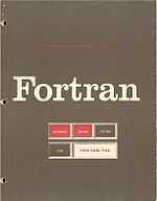
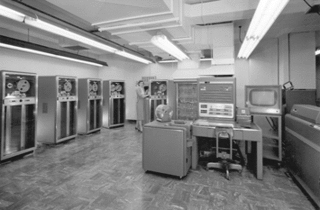
general-purpose, imperative programming language that is especially suited to numeric computation and scientific computing.
the 1950s
The name "Fortress" is intended to connote a secure Fortran, i.e., "a language for high-performance computation that provides abstraction and type safety on par with modern programming language principles”
a programming paradigm for reactive programming using the building blocks of functional programming
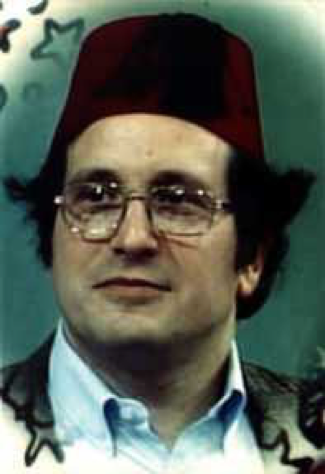
Sussman's contributions to artificial intelligence include problem solving by debugging almost-right plans, propagation of constraints applied to electrical circuit analysis and synthesis, dependency-based explanation and dependency-based backtracking, and various language structures for expressing problem-solving strategies.
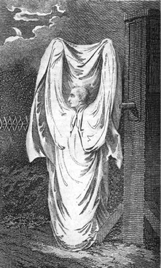
the soul or spirit of a dead person or animal that can appear, in visible form or other manifestation, to the living
threads that are scheduled by a virtual machine (VM) instead of natively by the underlying operating system
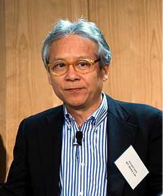
Ishii pioneered the Tangible User Interface in the field of Human-computer interaction with the paper "Tangible Bits: Towards Seamless Interfaces between People, Bits and Atoms”History of Maxwell's equations
replacing computer system components without shutting down the system.
For another example, word 3 of "life is cruel" (cruel) can be appended after the first word of "Hello world", yielding "Hello cruel world".
Referring to objects and the items on cards or backgrounds was easy.
HyperCard also included prototype or template cards known as "backgrounds"; when new cards are created they can refer to one of these background cards, which causes all of the objects on the background to be copied onto the new card. This way a stack of cards with a common layout and functionality can be created. The layout engine was similar in concept to a "form" as used in most rapid application development (RAD) environments (such as Borland Delphi, Visual Basic and Visual Studio).
combines database capabilities with a graphical, flexible, user-modifiable interface
HyperTalk scripts are fairly similar to written English, and use a logic structure similar to the Pascal programming language.
an observable property and effect of light
a software feature which, whenever a piece of data changes, attempts to save time by only recomputing those outputs which "depend on" the changed data.
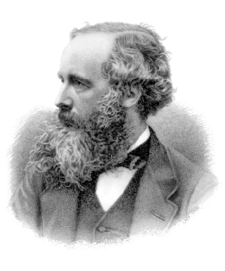
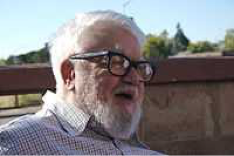
coined the term "artificial intelligence" (AI), developed the Lisp programming language family, significantly influenced the design of the ALGOL programming language, popularized timesharing, and was very influential in the early development of AI.
His 2001 short story "The Robot and the Baby"[18] farcically explored the question of whether robots should have (or simulate having) emotions, and anticipated aspects of Internet culture and social networking that became more prominent during the ensuing decade.
those who don't speak math are doomed to speak nonsense
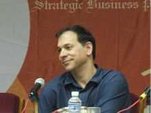
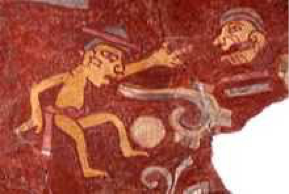
a person emitting a speech scroll from his mouth, symbolizing speech

a loop of rope designed as a restraint to be thrown around a target and tightened when pulled. It is a well-known tool of the American cowboy.

the process by which an object is suspended by a physical force against gravity, in a stable position without solid physical contact
a performing art that entertains audiences by staging tricks or creating illusions of seemingly impossible
Some modern illusionists believe that it is unethical to give a performance that claims to be anything other than a clever and skillful deception.Magic (paranormal)

Modern theories of magic may see it as the result of a universal sympathy where some act can produce a result somewhere else, or as a collaboration with spirits who cause the effect.
an attempt to understand, experience and influence the world using rituals, symbols, actions, gestures and language
The principle of similarity, also known as the "association of ideas", which falls under the category of sympathetic magic, is the thought that if a certain result follows a certain action, then that action must be responsible for the result.
Magic often utilizes symbols that are thought to be intrinsically efficacious.
Another primary type of magical thinking includes the principle of contagion. This principle suggests that once two objects come into contact with each other, they will continue to affect each other even after the contact between them has been broken.
Magical rituals are the precisely defined actions (including speech) used to work magic.
magic is an informal term for abstraction - it is used to describe code that handles complex tasks while hiding that complexity to present a simple interface
the true behavior of the code is not immediately apparent
It is a type of causal reasoning or causal fallacy that looks for meaningful relationships of grouped phenomena between acts and events.
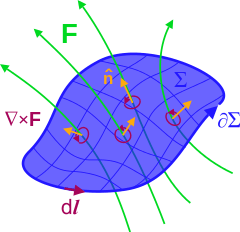
oundation of classical electrodynamics, classical optics, and electric circuits
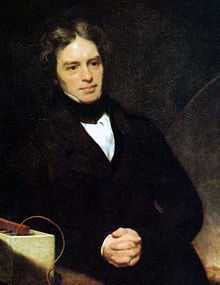
James Clerk Maxwell took the work of Faraday and others, and summarized it in a set of equations that is accepted as the basis of all modern theories of electromagnetic phenomenaMorphic (software)
graphical objects called Morphs for simplified GUI-building which allow for a great degree of flexibility and dynamism.
The phrase is derived from the French slogan "Ni dieu ni maître!" (literally 'Neither God nor master') coined by the socialist Auguste Blanqui in 1880, when he published a journal by that name.
OMeta’s slow running speed and unclear error reports remove much of its functionality as a full programming language
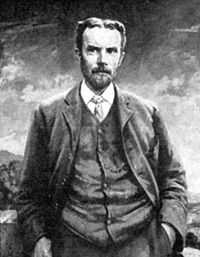
reformulated Maxwell's field equations in terms of electric and magnetic forces and energy flux
Sontag argues that the proliferation of photographic images had begun to establish within people a "chronic voyeuristic relation"[1] to the world around them. Among the consequences of photography is that the meaning of all events is leveled and made equal.
the medium fostered an attitude of anti-intervention. Sontag says that the individual who seeks to record cannot intervene, and that the person who intervenes cannot then faithfully record, for the two aims contradict each other. In this context, she discusses in some depth, the relationship of photography to politics.

for rendering 2D and 3D vector graphics. The API is typically used to interact with a Graphics processing unit (GPU), to achieve hardware-accelerated rendering.
analytic formal grammar, i.e. it describes a formal language in terms of a set of rules for recognizing strings in the language
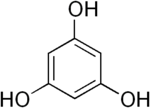
Phloroglucinol is an organic compound that is used in the synthesis of pharmaceuticals and explosives
science, technology and art of obtaining reliable information from noncontact imaging and other sensor systems about the Earth and its environment, and other physical objects and processes through recording, measuring, analysing and representation (ISPRS).
A dynamic slice contains all statements that actually affect the value of a variable at a program point for a particular execution of the program
the computation of the set of programs statements, the program slice, that may affect the values at some point of interest
spatial augmented reality
Prolog programs describe relations, defined by means of clauses. Pure Prolog is restricted to Horn clauses. There are two types of clauses: facts and rules.
An example of a fact is: cat(tom).
general purpose logic programming language associated with artificial intelligence and computational linguistics
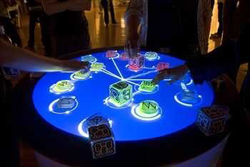
Underneath the table is a video camera, aimed at the underside of the table and inputing video to a personal computer. There is also a video projector under the table, also connected to the computer, projecting video onto the underside of the table top that can be seen from the upper side as well.
The Reactable is a round translucent table, used in a darkened room, and appears as a backlit display. By placing blocks called tangibles on the table, and interfacing with the visual display via the tangibles or fingertips, a virtual modular synthesizer is operated, creating music or sound effects.
an electronic musical instrument with a tabletop Tangible User Interface that has been developed within the Music Technology Group at the Universitat Pompeu Fabra in Barcelona, Spain
An expression is said to be referentially transparent if it can be replaced with its value without changing the behavior of a program (in other words, yielding a program that has the same effects and output on the same input). The opposite term is referential opaqueness.
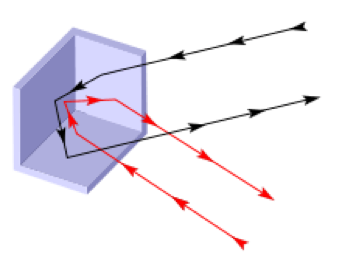
The angle of incidence at which the device or surface reflects light in this way is greater than zero, unlike a planar mirror, which does this only if the mirror is exactly perpendicular to the wave front, having a zero angle of incidence.
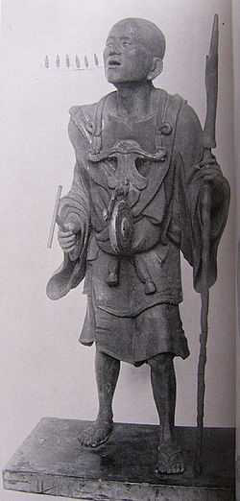
Kūya chanting the nembutsu, an Important Cultural Property
Selective Linear Definite clause resolution
Shader lamps is a computer graphic technique used to change the appearance of physical objects
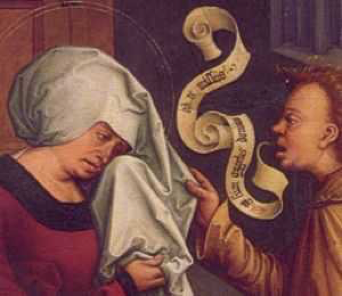
an illustrative device denoting speech, song, or, in rarer cases, other types of sound.
a non-corporeal substance contrasted with the material body. The word spirit is often used metaphysically to refer to the consciousness or personality
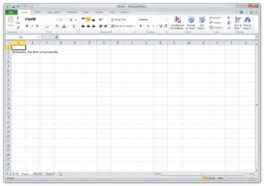
traditionally, a "spread" across facing pages of a bound ledger (book for keeping accounting records) or on oversized sheets of paper (termed "analysis paper") ruled into rows and columns in that format and approximately twice as wide as ordinary paper.
Each cell of the array is a model–view–controller element that can contain either numeric or text data, or the results of formulas that automatically calculate and display a value based on the contents of other cells.
This makes the spreadsheet useful for "what-if" analysis since many cases can be rapidly investigated without tedious manual recalculation.
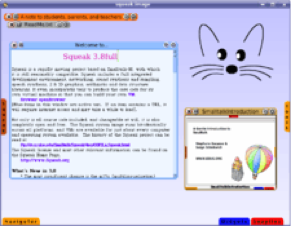

mechanical device that joins sheets of paper or similar material by driving a thin metal staple through the sheets and folding the ends.
Typical staplers are a third-class lever.
finding all possible run-time errors in an arbitrary program (or more generally any kind of violation of a specification on the final result of a program) is undecidable
analysis of computer software that is performed without actually executing programs

Propagation is by runners, which can be pegged down to encourage them to take root,[35] or cut off and placed in a new location. Established plants should be replaced every three years, or sooner if there are signs of disease.
When propagating strawberries, one should avoid using the same soil or containers that were previously used for strawberry cultivation.Susan Sontag
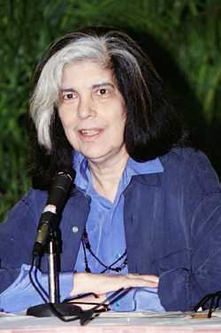
"'Shall I tell you about getting older?', she says, and she is laughing. 'When you get older, 45 plus, men stop fancying you. Or put it another way, the men I fancy don't fancy me. I want a young man. I love beauty. So what's new?' She says she has been in love seven times in her life. 'No, hang on,' she says. 'Actually, it's nine. Five women, four men.'"
she outlined her theory of taking pictures as you travel: The method especially appeals to people handicapped by a ruthless work ethic – Germans, Japanese and Americans. Using a camera appeases the anxiety which the work driven feel about not working when they are on vacation and supposed to be having fun. They have something to do that is like a friendly imitation of work: they can take pictures. (p. 10)Sussman Anomaly
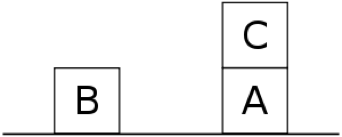
weakness of noninterleaved planning algorithms
to conceive of a "Parliament of Things" wherein natural phenomena, social phenomena and the discourse about them are not seen as separate objects to be studied by specialists, but as hybrids made and scrutinized by the public interaction of people, things and concepts.
the dualistic distinction modernity makes between nature and society. Pre-modern peoples, argues Latour, made no such division